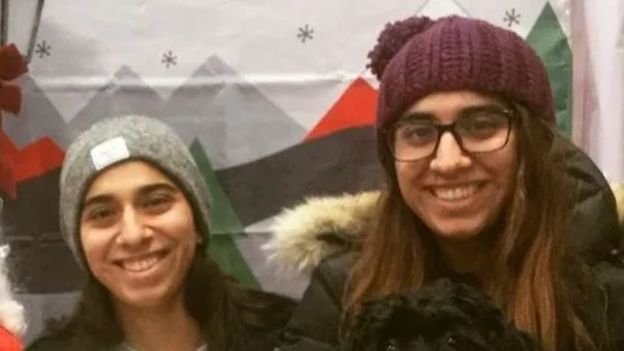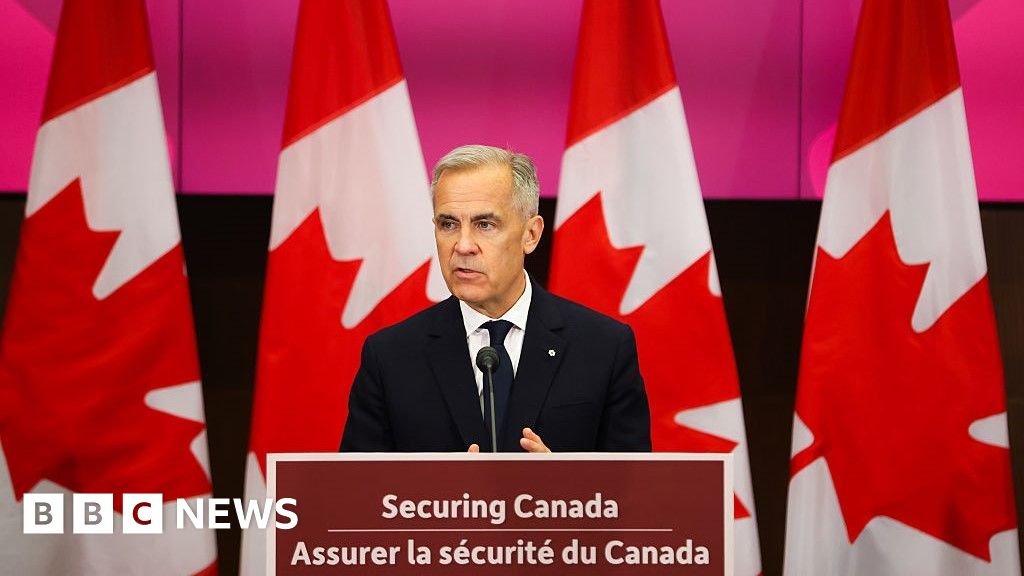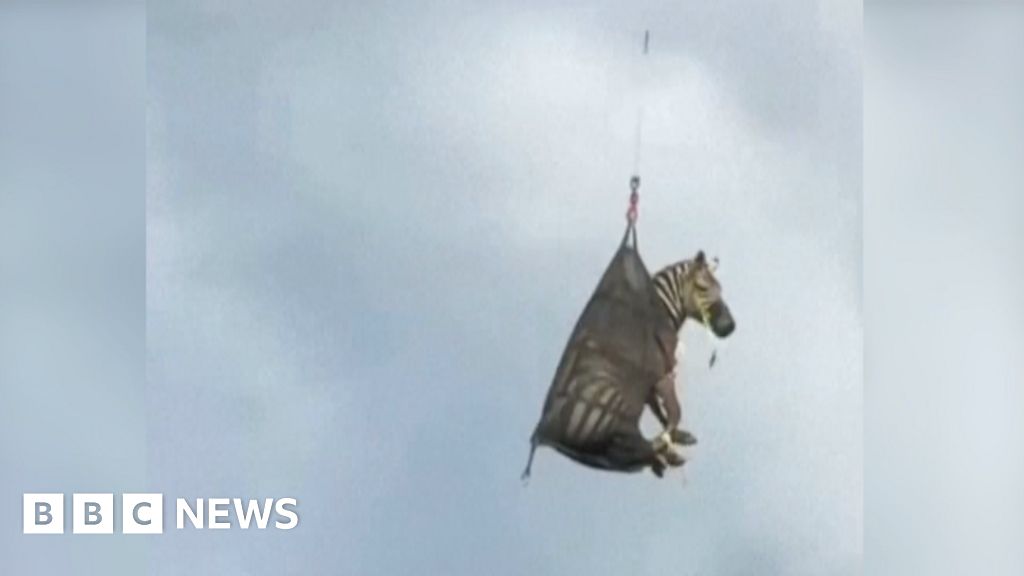ARTICLE AD BOX
 Image source, Instagram
Image source, Instagram
Twin sisters Nadya Gill (l) and Amira Gill were charged with fraud along with their mother
By Bernd Debusmann Jr
BBC News, Washington
Three women in Canada have been criminally charged after allegedly pretending to be Inuit to receive benefits from indigenous organisations.
According to police, two 25-year-old sisters committed fraud by posing as adopted Inuit children.
Both sisters and their 59-year-old mother are facing two counts of fraud each. One Inuit group called the alleged fraud "flabbergasting".
The defendants are due in court in the city of Iqaluit on 30 October.
In a statement, the Royal Canadian Mounted Police (RCMP) said that the sisters - Amira and Nadya Gill - and their mother, Karima Manji, defrauded two local organisations of "funds that are only available to Inuit beneficiaries by obtaining grants and scholarships" between October 2016 and and September 2022.
As part of a 1993 indigenous land claim settlement known as the Nunavut Agreement, members of Canada's Inuit community in the sparsely populated northern territory are able to receive benefits such as grants and scholarships.
Registration of indigenous status is overseen by an organisation called Nunavut Tunngavik Inc, or NTI, which represents Inuits in the territory.
In a March statement, NTI said that it had become "aware of possible fraudulent enrolment" of the Gill sisters after Ms Manji claimed that they were adoptive children and identified an Inuk woman as their birth mother.
They said the case was a "first of its kind" in the history of the organisation's enrolment programme.
After an investigation, the three, who are from the province of Ontario, were removed from the NTI's list of beneficiaries and the matter was referred to the RCMP.
The woman that was named by the Gills as their birth mother, Kitty Noah, said before her death in July that she was not related to the twins.
In 2021, the Gill sisters - both graduates of Queen's University in Ontario - launched an online business selling masks featuring designs by indigenous artists.
In an interview with Canadian broadcaster CBC, NTI President Aluki Kotierk said that "at a minimum", the Gill sisters and their mother should return the money they received from Inuit associations.
He added that the NTI would conduct more training for enrolment committees in the future.
Mr Kotierk characterised the alleged fraud as "another form of colonisation" and part of a wider trend of non-indigenous Canadians claiming indigenous heritage.
"You've wanted to take our language away from us," he said. "You've wanted to take our culture away from us. Now you're trying to claim our identity? It's just flabbergasting."
In a statement, the NTI called the case "isolated", but said it was strengthening enrolment criteria and would be requiring applicants to provide a copy of their long-form birth certificate.
In addition to the money given by the two local groups, the Kakivak Association and the Qikiqtani Inuit Association, claiming indigenous status also allowed the twins to receive scholarships awarded by Indspire, a Canadian indigenous charity, electricity company Hydro One and Royal Bank of Canada.
A spokesperson for the Royal Bank of Canada said that before 2021, scholarship applicants were able to self-identify as indigenous, but the requirements had since been updated.
The BBC has contacted Indspire and Hydro One for comment.
Some Canadians have referred to those falsely claiming indigenous ancestry as "pretendians".
Jean Teillet, a member of the Métis indigenous community, told Global News that the term downplays the severity of the issue because it "sounds harmless".
"I prefer to call it fraud because the definition of fraud is intentional deception to obtain a material gain and that's what we're talking about here."
The three women charged could not be immediately reached for comment.
King Charles III: A 'renewed beginning' for Canada's indigenous people

 1 year ago
49
1 year ago
49








 English (US) ·
English (US) ·